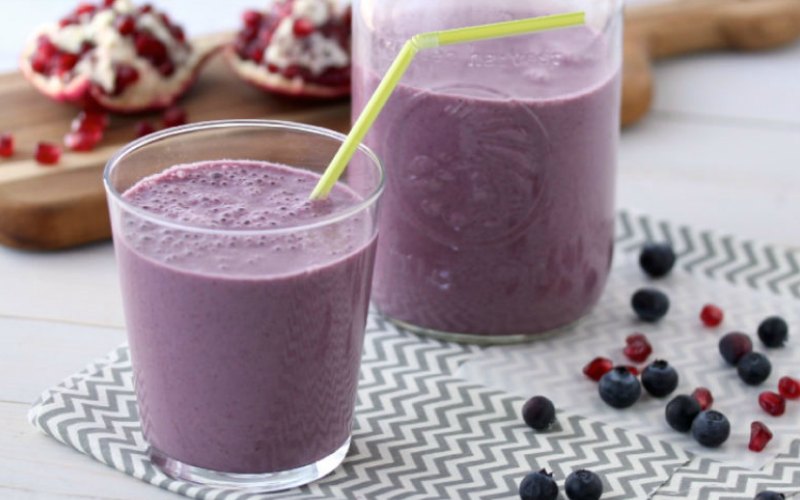
The Minimalist Guide to Wholesome Eating
The New Year always brings about fresh goals and ambitious lifestyle changes. It allows people to regroup, refocus, and recommit to healthier decisions and lasting resolutions. It is a time of growth and a time of exploration. What we select our New Year’s goal to be is completely up to us, and many use this opportunity to focus on relationships, career advancements and often their overall physical and mental health. In addition to these resolutions, people often seek to reestablish a healthier diet plan in order to provide them with the proper fuel and energy when it comes to making lasting lifestyle changes overall. They look to diet books, strict food regulations, and the latest diet trends. However, following such trends can sometimes actually do more harm than good. Rather, a simpler, more minimalist approach may be the answer to sticking to a more wholesome diet and a permanent lifestyle change when it comes to the food you consume. Here are a few helpful tips to consider when moving to a more minimalist wholesome diet:
What Nature Intended
Today, supermarkets are filled with an endless array of food that ranges in the quantity of beneficial nutrients found in each. Some come packaged in cardboard boxes and contain ingredients barely comprehendible to the average shopper. Others appear to be recently plucked from a nearby tree and placed in the produce bin for your convenience. How are we to know which to eat and which to avoid? As a general rule of thumb, the best route to take is to go with products that are closest to their original form as they can be. For example, a food item stuffed in a plastic bag and then into a cardboard box is most likely filled with countless preservatives and ingredients harmful to your body. An organic apple, on the other hand, is just what it appears to be; an apple filled with nutrients and loaded with flavor. It is also important to consider the source. Many fruits and vegetables today are loaded with pesticides and many animal products come from animals who have been fed hormones and other dietary consumptions that are not healthy for them or for us. For this reason, it is important to consider the source. Look for food
that is organic, locally grown, and has no added hormones, preservatives, etc. If you cannot understand the label or what makes up the food you are about to consume, it is probably not worth putting into your body.
Clean Eating Doesn’t Have to Be Boring
We often hear the words “clean eating”, “wholesome eating”, or “healthy eating”, and we assume the outcome is boredom with our foods and meals void of any pleasurable moments. This could not be further from the truth. When incorporating a more wholesome diet into your lifestyle, consider looking at different cultural dishes to keep the time spent in your kitchen exciting! There are so many different spices, vegetables, legumes, grains, and everyday ingredients when you step outside of a particular culture’s food compositions and replace it with another. Learning the vast array of ingredients available to you keeps your dishes exciting and your palate interested. Simple, wholesome ingredients will never seem dull when you are constantly introducing new foods into your recipe repertoire.
A Few Minimalist Recipes
Eating wholesomely also doesn’t have to be overly complicated. There are somedays when we simply do not have the time to prepare a four course French cuisine. On days like this, consider a few of the following recipes to keep your new eating habits on point:
Chia Parfaits- This recipe is so simple and so quick, it may just become a new favorite in your home. Simply place ¼ cup chia seeds and ½ cup nut milk of choice into a mason jar and shake well. Place in the refrigerator for a minimum of 30 minutes (longer if you wish). The mixture will become a pudding consistency the longer you let it set. Then add layers of any wholesome ingredients you would like. Sliced bananas, berries, nuts, homemade granola, and seeds are just a few examples. You can also create a layering pattern if you wish. Simply make a larger batch of your “chia pudding” and then layer it into mason jars with the other ingredients you choose. This is the perfect on-the- go snack for work or post-gym because it is loaded with protein, healthy fats, and yummy ingredients your body needs!
Wholesome Bowls- These bowls are perfect for anyone who is looking for a little meal prep on a Sunday afternoon to make lunches easier for the week ahead. The bowls are very simple and filled with options to keep your meals interesting. To create a wholesome bowl simply select a grain of choice (consider farro, quinoa, barley, rice, etc.), a legume of choice (lentils, black beans, garbanzo beans, etc.), roasted vegetables (onions, carrots, broccoli, squash, etc.), and any additional greens, seeds, nuts, herbs, and fresh dressings you find appealing. To make the roasted vegetables, cut the vegetables into bite-size portions, toss with olive oil and pepper, and place in the oven at 450°F for 10-45 minutes depending on the vegetables you choose. Using the tip from above, keep your bowl interesting by selecting different cultural ingredients when it comes to your spices, herbs, and homemade dressing. Also remember to keep the food selections fresh and natural- no added sugars, preservatives or ingredients you do not recognize. Once all of your ingredients are prepared, simply portion each into individual containers so they will be ready to go for the week ahead! When you stick to wholesome ingredients, these bowls will be loaded
with healthy nutrients to keep you going throughout the day!
This New Year opt for a minimalist wholesome eating routine using a few of the tips above. Starting the year off right by fueling your body with delicious ingredients and wholesome produce will leave you feeling ready to take on the year full of energy and fresh ideas when it comes to your time spent in the kitchen! Food does not have to be boring, rather, it can be one of the most exciting experiences you pursue this year!
* “The Minimalist Guide to Wholesome Eating” is not to replace any recommendations given to you by your health professional. It is important to discuss any dietary adjustments with your doctor or nutritionist and avoid any foods your doctor does not recommend or your body rejects. For health purposes, it may be necessary to stick to a more regimented diet created by your health advisor.
















